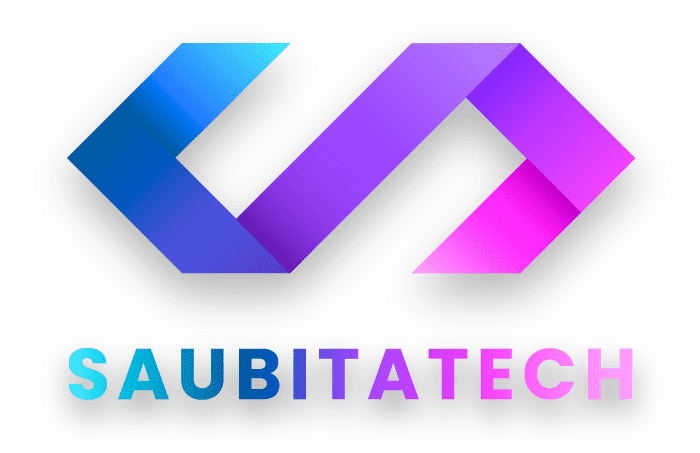Recruitment Process Outsourcing (RPO) has become a cornerstone for organizations in the US seeking efficient and scalable hiring solutions. With the ever-evolving job market and increasing competition for top talent, RPO providers must continuously innovate to meet client expectations. Automation, with its ability to streamline processes and enhance accuracy, is revolutionizing the way RPO services are delivered. In this blog, we will explore the pivotal role of automation in transforming RPO services, its benefits, challenges, and future potential.
Understanding RPO and Its Challenges
RPO services involve outsourcing all or part of an organization’s recruitment process to a third-party provider. This partnership allows companies to focus on their core business activities while ensuring that their talent acquisition needs are met efficiently. However, traditional RPO processes often face challenges such as:
- High Volume Recruitment: Managing large-scale hiring projects within tight timelines.
- Quality of Hire: Ensuring candidates meet the required skill set and cultural fit.
- Administrative Burden: Handling repetitive tasks like resume screening and interview scheduling.
- Cost Management: Balancing the budget while maintaining high-quality recruitment standards.
Automation addresses these challenges by integrating advanced technologies to optimize recruitment workflows.
How Automation is Reshaping RPO Services
Automation has become a game-changer in the RPO industry, enabling providers to enhance efficiency, reduce errors, and improve candidate experience. Here’s how automation is transforming RPO services for US clients:
1. Automated Candidate Sourcing
Automation tools can scrape job boards, social media platforms, and professional networks to identify potential candidates. AI-powered algorithms analyze resumes and profiles to match candidates with job requirements, saving significant time and effort.
2. Streamlined Resume Screening
Traditional resume screening is time-intensive and prone to human error. Automated systems use natural language processing (NLP) and machine learning to evaluate resumes based on predefined criteria, ensuring faster and more accurate shortlisting.
3. Efficient Interview Scheduling
Coordinating interviews often involves back-and-forth communication between candidates and hiring managers. Automated scheduling tools sync calendars and propose optimal time slots, reducing delays and improving candidate engagement.
4. AI-Powered Candidate Engagement
Chatbots and virtual assistants can engage with candidates throughout the hiring process, answering queries, providing updates, and guiding them through application steps. This ensures a seamless candidate experience and enhances employer branding.
5. Data-Driven Decision Making
Automation tools generate actionable insights by analyzing recruitment metrics such as time-to-hire, cost-per-hire, and candidate conversion rates. These insights help RPO providers optimize their strategies and demonstrate ROI to clients.
6. Compliance and Reporting
Automated systems ensure adherence to labor laws and recruitment standards by maintaining detailed documentation and generating compliance reports. This reduces legal risks for both RPO providers and their clients.
How RPO Providers Use Technology to Enhance Candidate Experience

Benefits of Automation in RPO Services
The integration of automation into RPO services brings a host of benefits for both providers and clients:
1. Increased Efficiency
Automation minimizes manual intervention, enabling RPO providers to handle high-volume recruitment projects with speed and precision.
2. Cost Savings
By reducing the time spent on repetitive tasks, automation lowers operational costs and allows providers to deliver cost-effective solutions to clients.
3. Enhanced Candidate Experience
Personalized communication and faster processes create a positive impression on candidates, increasing their likelihood of accepting offers.
4. Improved Quality of Hire
Data-driven assessments and AI algorithms ensure that only the most suitable candidates are selected, leading to better hiring outcomes.
5. Scalability
Automation allows RPO providers to scale their services seamlessly, accommodating the fluctuating hiring needs of US clients.
6. Reduced Errors
Automated systems minimize human errors, ensuring accuracy in tasks such as resume parsing, interview scheduling, and compliance reporting.
Challenges of Implementing Automation in RPO Services
While the benefits of automation are undeniable, its implementation is not without challenges:
- Initial Investment: Deploying automation tools requires significant upfront costs, which may deter smaller RPO providers.
- Resistance to Change: Employees and clients may resist adopting new technologies due to a lack of understanding or fear of job displacement.
- Data Security: Handling sensitive candidate information necessitates robust cybersecurity measures to prevent breaches.
- Integration Issues: Ensuring that automation tools integrate seamlessly with existing systems can be complex and time-consuming.
- Continuous Updates: Keeping up with technological advancements requires ongoing investments in training and system upgrades.
Case Studies: Automation Success Stories
Several RPO providers have successfully leveraged automation to deliver exceptional results for their US clients:
Case Study 1: High-Volume Hiring for a Retail Giant
An RPO provider used automated sourcing and screening tools to recruit over 5,000 employees within three months. Automation reduced the time-to-hire by 40% and enhanced the quality of hires, leading to increased client satisfaction.
Case Study 2: Streamlining Campus Recruitment
A leading RPO provider implemented AI-powered chatbots to engage with college graduates during campus recruitment drives. The chatbots answered queries, collected resumes, and scheduled interviews, resulting in a 30% increase in candidate participation.
Leveraging AI and Data Analytics in RPO for Smarter Hiring Decisions
Future Trends in RPO Automation
The role of automation in RPO services is expected to grow further, with emerging trends such as:
- Predictive Analytics: Leveraging AI to forecast hiring needs and market trends.
- Blockchain Technology: Ensuring secure and transparent handling of candidate data.
- Remote Hiring Solutions: Facilitating virtual interviews and assessments using advanced video conferencing tools.
- Gamification: Enhancing candidate engagement through interactive assessments and simulations.
- Diversity and Inclusion Tools: Using AI to eliminate bias and promote fair hiring practices.
Partnering with SaubiaTech for Automated RPO Solutions
At SaubiaTech, we understand the transformative impact of automation on RPO services. Our commitment to innovation and excellence enables us to deliver tailored recruitment solutions that meet the unique needs of US clients. Explore our custom web development services at https://saubitatech.com/custom-web-development/ to learn how we integrate cutting-edge technologies into recruitment processes.
For career opportunities and to be a part of our dynamic team, visit https://saubitatech.com/career/. Have questions or need assistance? Contact us today at https://saubitatech.com/contact-us/.
Stay updated with the latest insights and trends in technology and recruitment by visiting our blogs at https://saubitatech.com/blogs/.
Conclusion
Automation is not just an option but a necessity for RPO providers aiming to stay competitive in the US market. By streamlining processes, improving candidate experience, and delivering data-driven insights, automation empowers RPO providers to exceed client expectations. As technology continues to advance, the potential for automation in RPO services is limitless, paving the way for a more efficient and effective recruitment landscape.
Partner with SaubiaTech to leverage the power of automation in transforming your recruitment processes. Together, we can shape the future of talent acquisition.







